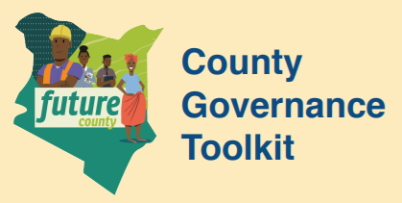Search
This page gives you direct access to all the resources – web pages and downloadable files – available in the County Governance Toolkit.
You can narrow the search results by typing keywords in the search field and/or by adding filters using the check boxes below to select the Type of Resources and Topic of your interest.
Monitoring
Monitoring is the process by which departments track progress on the performance indicators set in their annual work plans and budgets. With the technical assistance of the Monitoring and Evaluation Unit, each department establishes a tailor-made M&E system that identifies: (a) the key performance indicators for each… read more
Toolkit PageRevised Budget Estimates
Revised Budget Estimates may arise on an ongoing basis as the result of reallocations (virements) between budget lines, within established guidelines, or cumulatively, based on the need to revise the overall budget through supplementary budget estimates. In addition to revisions relating to the rest of the year, all spending… read more
Toolkit PageCommitment Control
Commitment Control is a specific aspect of budget execution that draws reference to mechanisms and actions that ensure that transactions are fully funded prior to their authorization. It acts as a link between cash/exchequer management, procurement and asset/liability management, and it plays a critical role in limiting the… read more
Toolkit PageInternal Audit
Internal Audit is an independent internal management support function that exists to ensure the efficient and effective use of the county’s resources. It is a critical component of the internal financial controls necessary to protect the county’s financial interests, while also acting as a feedback mechanism to departments on… read more
Toolkit PageAsset and Liability Management
Asset and Liability Management represents one of three core, non-payroll processes that combine into “budget execution”. As with exchequer and cash management, and procurement, asset and liability management is a year-round activity, working as an integrated life-cycle rather than individual steps or processes. The cycle covers… read more
Toolkit PageProcurement
Procurement represents one of three core, non-payroll processes that make up budget execution. Akin to other budget execution processes, it happens continuously throughout the year, based on the procurement plan. Procurement is therefore best viewed as a cycle rather than a one-off process. Every procurement cycle runs through… read more
Toolkit PageExchequer and Cash/Treasury Management
Exchequer and Cash/Treasury Management is an “omnibus” term that reflects one of three core, non-payroll budget execution processes. It happens continuously throughout the year, based on cash flow plans and exchequer requests and issues, and is best understood as an integrated cycle, rather than discrete processes. There are… read more
Toolkit PageCash Flow Forecast
Based on the Work Plan (combining the procurement plan with the other recurrent costs), the Finance and Economic Planning department compiles the Cash Flow Forecast, which sets the cashflow requirements, based on expected payment dates and amounts, for each department and the county government as a whole. Cash flow forecasts… read more
Toolkit PageProcurement Plan
The Procurement Plan translates the work plan into a schedule of all works, good and services to be purchased or contracted, across the procurement cycle from orders to delivery to supplier payment. As with the work plan, it is prepared and presented on a quarterly basis. Linkages Upstream: Budget Estimates, Budget… read more
Toolkit PageProject Implementation Plan
The Project Implementation Plan is a work planning by-product that specifies project implementation activities and outputs, resources allocated and the units/persons responsible. As with the work plan, it is prepared and presented on a quarterly basis. Projects are usually responsible for a significant portion of public… read more
Toolkit Page